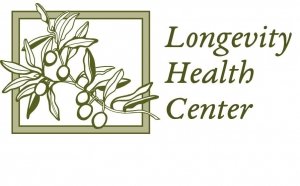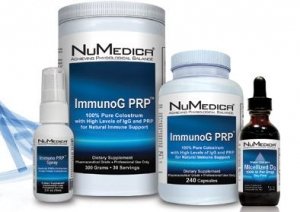For the past 50 years, the medical community has vigorously promoted the notion that high cholesterol is the primary risk factor of coronary heart disease, and that a diet high in saturated fat and cholesterol causes cardiovascular problems. During this time, we have been told to adhere to a low-fat diet and millions of people have been put on statin drugs in order to lower cholesterol levels. Unfortunately, the rate of heart disease has only continued to rise. Just consider the following:
- Cardiovascular disease affects 65 million Americans
- Close to 1 million Americans have a heart attack each year
- In America, 1 person dies every 39 seconds of cardiovascular disease
- 1 of 3 deaths that occurs in the U.S. is caused by cardiovascular disease
Clearly, what we have been doing in an effort to improve cardiovascular health is not working! The cholesterol-heart connection has been in question for quite some time now, and science is finally confirming such suspicions and bringing light to the real reasons behind cardiovascular disease. It’s time to debunk everything that was originally thought to cause cardiovascular disease, uncover the real why, and figure out ways we can truly reduce the risk of heart issues.
MYTH #1: CHOLESTEROL IS BAD FOR YOU
We already know that there is good and bad cholesterol. High density lipoprotein (HDL) cholesterol is “good cholesterol” whereas low density lipoprotein (LDL) cholesterol is “bad cholesterol.” But this isn’t completely accurate. In order to explain, let’s compare cholesterol to water. While our bodies need both in order to survive, the quality of each dictates how good it really is for us. Clean, pure water is essential, but contaminated water can make us very sick. This is also true for cholesterol. Clean cholesterol is required for proper brain functioning and hormone production and actually acts like a band aid to help repair arterial damage. It is the oxidized, or rancid cholesterol that can negatively effect our health. LDL cholesterol has earned the title of “bad cholesterol” because it is the type of choletserol that is susceptible to oxidative damage. So the question we should be asking isn’t “how much LDL cholesterol is in the blood,” but rather “how much LDL cholesterol has been damaged?”
MYTH #2: DIETS HIGH IN SATURATED FAT AND CHOLESTEROL CAUSE HEART DISEASE
If this were true, every breast-fed baby would have some form of heart disease because breast milk contains very high amounts of cholesterol! A recent study that included close to 350,000 human participants flat out debunked this thought process when it found absolutely no association between saturated fat and heart disease. This is because much of the cholesterol that’s found in food cannot be absorbed by our bodies, and most of the cholesterol in our gut was first synthesized in body cells and ended up in the gut through the liver and gall bladder. The body also tightly regulates the amount of cholesterol in the blood by controlling internal production. This means that the body will make less cholesterol when more is absorbed from the diet and vice versa. Even more, a Japanese study followed 58,000 men for about 14 years and concluded that those who ate more saturated fat actually had a lower risk of stroke!
MYTH #3: VEGETABLE OILS ARE GOOD FOR THE HEART
Vegetable oils are very unstable. It doesn’t take much heat to turn a mono or polyunsaturated fat into a rancid, trans fat. This happens when we cook food in olive oil or fry things in vegetable oils like canola oil. The now rancid oils wreak havoc on our bodies and oxidize our LDL cholesterol.
From a nutrition standpoint, vegetable oils are very high in omega 6 fatty acids, whereas the saturated fat from grass fed animals is high in the heart healthy omega 3 fatty acids. While our bodies need some of both, the overabundance of vegetable oils and refined grains in our diet has tipped the scale to where we are all getting too many omega 6’s and not enough omega 3’s. This ends up causing excess inflammation in the body and leads to a host of diseases; including cardiovascular disease, type 2 diabetes, metabolic syndrome, IBS, macular degeneration, rheumatoid arthritis, asthma, autoimmune disorders, and even cancer!
MYTH #4: STATIN DRUGS REDUCE THE RISK OF DEATH
Statin drugs only do one thing- lower your total cholesterol levels. This is flat out commical now that we know that cardiovascular disease is not caused by high cholesterol. And even if it was, these drugs would only be band-aids to an underlying problem of why there is a problem in the first place.
Lowering your cholesterol levels can negatively effect your health in so many ways. First and foremost, our brains need cholesterol to grow, develop, and function properly. Secondly, the production of all of our sex hormones requires adequate levels of cholesterol in the body. When you sit back and think about this one, it is no wonder why every middle aged man on satin drugs has low testosterone and also takes Viagra! To top it all off, we are now finding that low cholesterol levels can increase your risk of death, especially in women and the elderly! One study of over 52,000 Norwegians found that women with total cholesterol levels below 195 mg/dL had a higher risk of death than women with cholesterol levels over 200 mg/dL. Another study published by the American Journal of Medicine found that people over 70 with total cholesterol levels below 160 mg/dL had twice the risk of death than those with cholesterol levels between 160-199 mg/dL.
The Paradigm Shift
Now that we have debunked many of the myths surrounding heart disease, it is time to talk about the real risk factors of heart diease and what we can do about them.
WE MUST PROTECT CHOLESTEROL BY REDUCING OXIDATIVE STRESS
Oxidative stress is caused by free radical damage. Some free radicals are produced in the body as a result of digestion and respiration, but we are also exposed to a host of free radicals from air pollution, pestcides and herbicides, and other household chemicals. In order to minimize the damage from free radicals, we need to reduce exposure to them as much as possible and equip the body with what it needs to combat their damaging effects. A diet full of antioxidant rich foods neutralizes free radicals and prevents them from damaging our own cells, LDL cholesterol included. When thinking about antioxidant rich foods think about all of the colors of the rainbow. You want to make every meal as colorful as possible, opting for organic Detox foot baths can also be a great way to neturalize free radicals in the body. They work by introducing negative electrons into the body, which bind to the free radicals and neturalize them. The body will then flush them out of the system naturally.
SUGAR IS A MAJOR CONTRIBUTOR TO HEART DISEASE
A recent study that was published in the Journal of the American Medical Association concluded that “most US adults consume more added sugar than is recommended for a healthy diet,” and that there’s “a significant relationship between added sugar consumption and increased risk for cardiovascular disease mortality.” This was concluded after a 15year long study found that those who consumed 25% or more of their daily calories from sugar were more than twice as likely to die from heart disease as those who consumed less than 10% of their calories from sugar.
FAT IS YOUR FRIEND
Monounsaturated fats, as in the ones found in olives, olive oil, macadameia nuts, and avocados, have been shown to reduce LDL and triglycerides and increase HDL. They also decrease oxidozed LDL cholesterol, reduce oxidation and inflammation in general, lower blood pressure, and decrease thrombosis- thus reducing the risk of heart disease. Just remember to save that drizzle of olive oil for after cooking so it does not become rancid!
Omega-3 fats have several cardiovascular benefits. An analysis of randomized trials since 2003 suggests that regular consumption of omega-3’s would reduce total mortality from all causes by 17%. Cold water, fatty fish like salmon are most famous for their omega-3 content, but organic grass fed beef is also extremely high in these heart healthy omegas. I emphasize grass fed because grain fed beef has a significantly lower amount of omega-3’s and an increased amount of the omega-6’s that we are already getting too much of.
A HEART-HEALTHY DIET IS A LOW-CARBOHYDRATE DIET
A low-carbohydrate diet contains limited amounts of grains and an abumdance of protein, healthy fats, vegetables, and some fruits. This type of diet is now associated with significant decreases in body weight as well as improvements in cardiovascular risk factors, including decreases in triglycerides, fasting glucose, blood pressure, body mass index, abdominal circumference, plasma insulin, c-reactive protein, and even an increase in HDL cholesterol.
It is important to remember that it is never one single thing that causes a disease, but rather an accumulation of risk factors over time. With the knowledge that we now have about all of the new discoveries on heart health, we can be proactive in eliminating, or at least decreasing, the risk factors that we have control over and finally start to see a decline in the rate of cardiovascular disease in America and worldwide.





